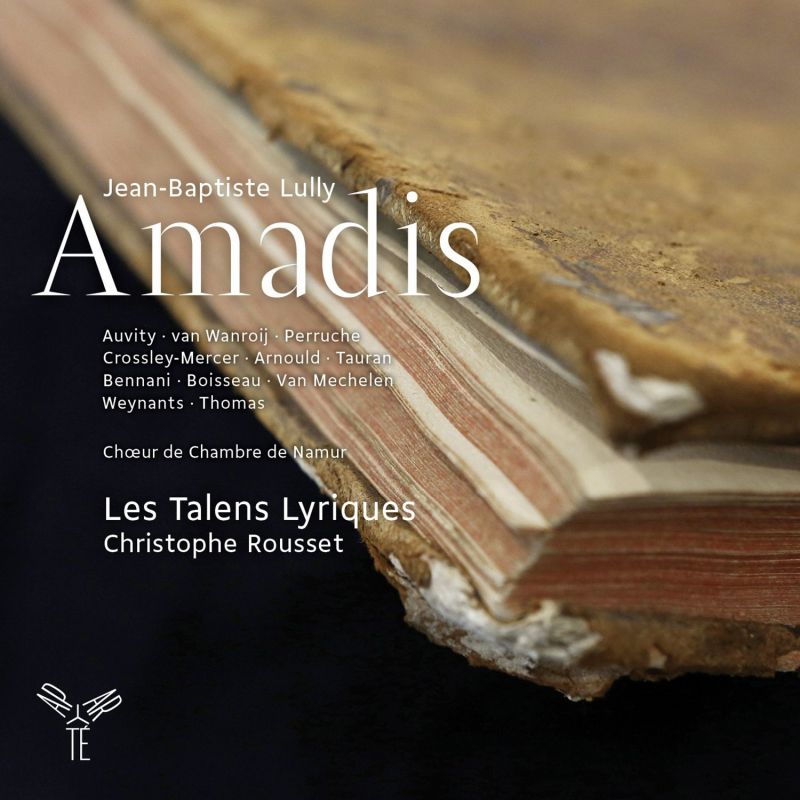LULLY Amadis
View record and artist detailsRecord and Artist Details
Composer or Director: Jean-Baptiste Lully
Genre:
Opera
Label: Aparte
Magazine Review Date: 12/2014
Media Format: CD or Download
Media Runtime: 163
Mastering:
DDD
Catalogue Number: AP094

Tracks:
| Composition | Artist Credit |
|---|---|
| Amadis |
Jean-Baptiste Lully, Composer
(Les) Talens Lyriques Bénédicte Tauran, Urgande, Soprano Benoit Arnould, Florestan, Baritone Caroline Weynants, Soprano Choeur de Chambre de Namur Christophe Rousset, Conductor Cyril Auvity, Amadis, Tenor Edwin Crossley-Mercer, Arcalaus, Baritone Hasnaa Bennani, Corisande, Soprano Ingrid Perruche, Arcabonne, Soprano Jean-Baptiste Lully, Composer Judith Van Wanroij, Oriane, Soprano Pierrick Boisseau, Alquif; Ardan Canile, Baritone Reinoud van Mechelen, Captive; Villager, Tenor Virginie Thomas, Soprano |
Author: David Vickers
In Act 1, Judith van Wanroij’s agitated Oriane is quick to falsely suspect Amadis of infidelity prior to a bellicose divertissement presenting a knightly tournament (featuring thrilling trumpets and swaggering timpani); but her most breathtaking moment is the centrepiece of Act 4 when Amadis appears to be dead and she yearns to follow him (‘Il m’appelle; je le vais suivre’). Two outstanding monologue airs are in Act 2, set in a forest: Ingrid Perruche’s histrionic Arcabonne admits her lovesickness for the unknown hero who once saved her life in ‘Amour que veux-tu de moi?’; a few scenes later, the title-hero’s attempt to conceal his melancholy in the shadows of the trees in ‘Bois épais, redouble ton ombre’ is sung ardently by Cyril Auvity. Powerful projection better suits Edwin Crossley-Mercer’s dark sorcerer Arcalaüs; after he summons his infernal demons to fight Amadis, a divertissement conveys how they fail to overcome the hero in combat but then bewitch him by disguising themselves as nymphs and shepherds singing a pastoral hymn to love. A quickfire series of set pieces in Act 3 includes a chorus counterpointing doleful prisoners with their cruel demonic captors (‘Ciel! finissez nos peines’), the arrival of the haughty Arcabonne on a dragon (difficult to illustrate in concert) and an astonishing orchestral recitative for the apparition of the ghost of Ardan Canile to prophesy his sister’s doom (sung solemnly by Pierrick Boisseau). Les Talens Lyriques’ expertly played grand chaconne at the opera’s conclusion is another fine testament to Rousset’s Lulliste fascination.
Discover the world's largest classical music catalogue with Presto Music.

Gramophone Digital Club
- Digital Edition
- Digital Archive
- Reviews Database
- Full website access
From £8.75 / month
Subscribe
Gramophone Full Club
- Print Edition
- Digital Edition
- Digital Archive
- Reviews Database
- Full website access
From £11.00 / month
Subscribe
If you are a library, university or other organisation that would be interested in an institutional subscription to Gramophone please click here for further information.




